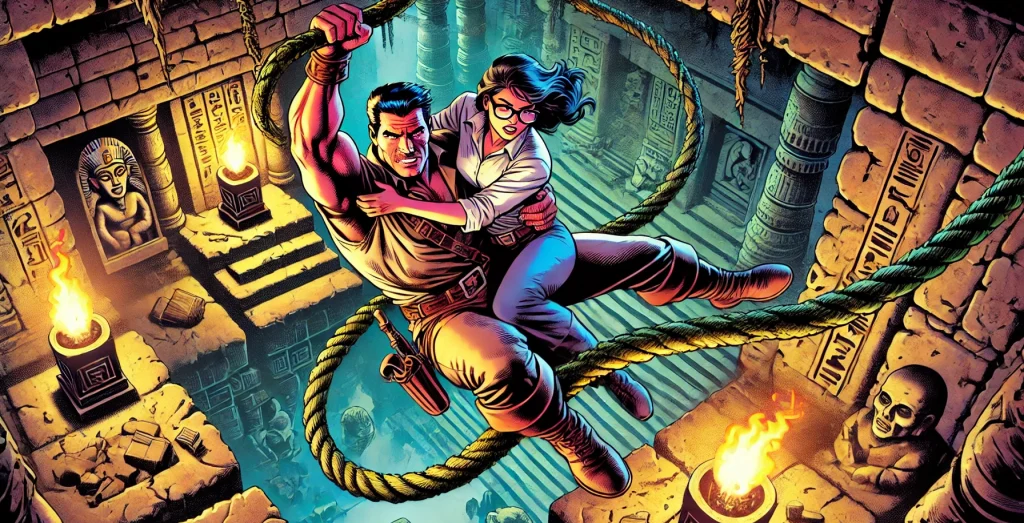In Flex RPG, any action a character attempts can be considered a task. If it’s reasonable to assume the character can easily succeed, the GM should allow the task to be accomplished without a roll. However, when there is a possibility of failure, the outcome is determined by making a stat roll against a target difficulty level. Additionally, any relevant attribute and equipment modifiers would be added to the roll, as well as any boost dice if the player chooses to use them.
Certain tasks may be influenced by circumstances that make them easier or harder to accomplish. In such cases, the GM may impose advantage or disadvantage, affecting the outcome of the roll. Rolling significantly higher than the target number might result in an extreme success, allowing the character to achieve more than expected, while rolling far below could lead to a critical failure with unintended consequences.
Example Task Resolution
Player: “Alright, my tomb raider is going to swing across the chasm using the old rope that’s hanging there. Can I use my ‘Tomb Delver’ power to give me a bonus to my Physical Agility roll?”
GM: “Of course! ‘Tomb Delver’ gives you a +3 bonus for navigating dangerous environments like this, so add that to your PA roll. Let’s see how you do.”
Player: [rolls D20 + D10 for Physical Agility, then adds the +3 bonus] “I rolled a 19, plus 6 for PA and the +3 bonus from ‘Tomb Delver’. That’s a total of 28!”
GM: “That’s an extreme success! Not only do you swing across effortlessly, but you land perfectly and notice a hidden passage below as you glance down. Your tomb raider’s instincts are spot on!”

